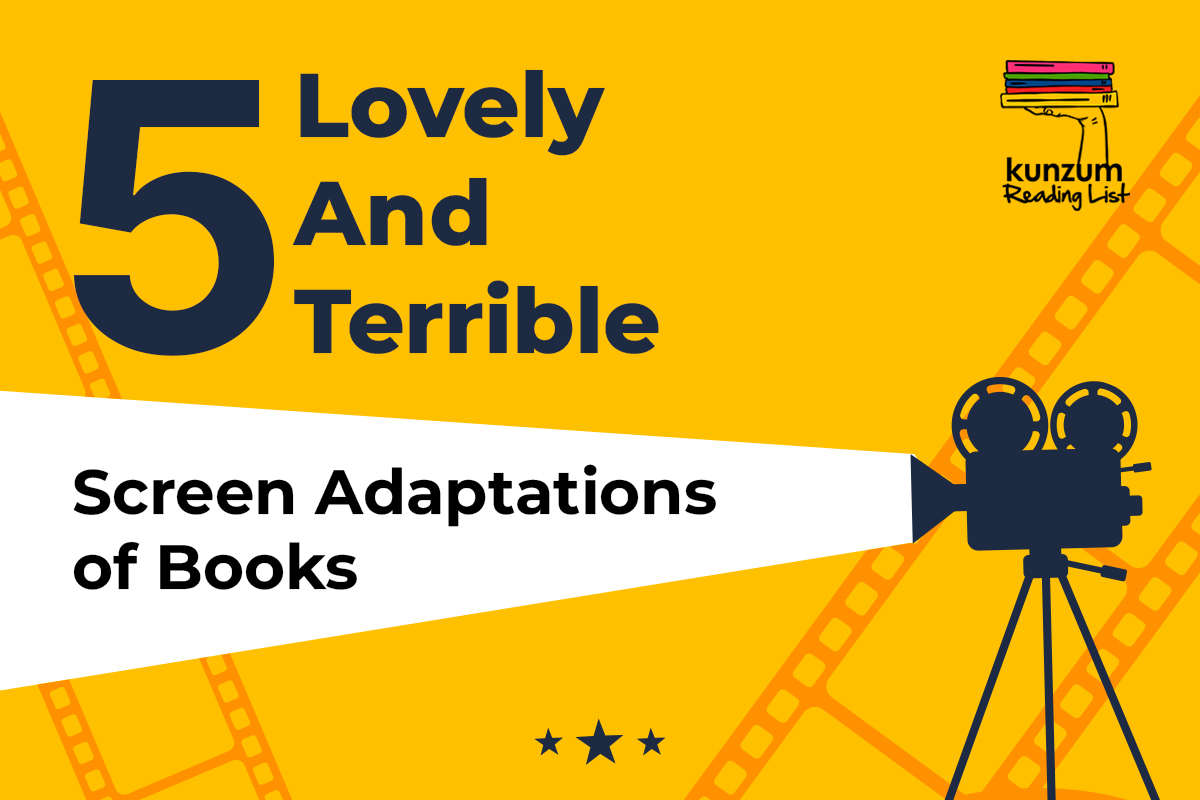
As Fredrik Backman’s A Man Called Ove gets adapted into a movie with Tom Hanks playing the protagonist, we look back at some memorable screen adaptations. Some that breathed new life into their respective books and some that could not live up to expectations. By Paridhi Badgotri
'The book is a film that takes place in the mind of the reader. That’s why we go to movies and say “Oh, the book is better”' - Paulo Coelho
There are countless screen adaptations of books out there, and more continue to get made every year. And the most common refrain remains: ‘But the book was better!’. Screen adaptations can never be literal, comprehensive translations of the original texts, and tend to change or omit many of the details that readers love. Having said that, they also bring to life some of our favourite characters and plot lines—think Alan Rickman as Snape!—if made well! If they’re made terribly, however, they can leave a sour taste in the mouth.
Here’s a list of five film/TV treatments that did justice to the books, and five that you can only hate-watch. Pick up the books from Kunzum, watch the screen versions, and let us know what you think!
The Good Ones
Sherlock (2010–2017)
Many good actors have played Sherlock Holmes, but none have done it quite as memorably as Benedict Cumberbatch in the notoriously long series Sherlock. While the TV series wasn’t an exact adaptation of Arthur Conan Doyle’s original stories—it places the Victorian-era detective in the 21st century—the series turned out richer for it. With great casting—Martin Freeman as Dr Watson and Andrew Scott as Moriarty—the series has etched itself onto the minds of fans and become a modern classic itself.

The Lord of the Rings Series
J.R.R. Tolkien’s Middle-earth finds the perfect world in the visuals of Peter Jackson. Everything from the music to the casting, the costumes, and the sets did justice to Tolkien’s groundbreaking vision and the fans’ imagination. The run-times of the movies may have been a deterrent to some, but for the LOTR fandom, they only meant more delicious detail making its way onto the screen.

The Godfather
A movie that won nine Oscars, The Godfather has come to be known as a masterpiece in and of itself. Released in 1972, the film’s magic actually overpowered the book’s influence. Even though the novel was a best-seller, many dismissed it as pulp fiction. It was only after the movie’s release that the book received the respect it always deserved.

The Handmaid’s Tale
In five seasons, the screen adaptation of The Handmaid’s Tale, written by Margaret Atwood, elucidates the essence of the dystopian world presented in the book. The series follows the narrative beyond the novel’s premise and makes it even more visceral with the visual format.

Little Women
Greta Gerwig’s movie seamlessly interprets the world of its classic book while also making a grander statement about female ambition. The casting is on point, the visuals arresting, the emotional plotlines as heart-wrenching as in the book, and Gerwig introduces the subtlest of tweaks to make the story even more feminist and ambitious in the 21st century.

The Ones You Should Hate-Watch
Alice in Wonderland
A book with a memorable world and enduring philosophies is reduced to a kids’ movie with little more than good VFX and fleeting aphorisms. While Tim Burton delivers a visually dazzling sequence here and there, the movie delivers a sanitised story bereft of the charms of the book. The cast is a mixed bag, with Helena Bonham Carter and Johnny Depp carrying the film and Anne Hathaway almost a caricature of herself.

A Wrinkle in Time
Visual effects cannot save a poor adaptation. The 2018 movie lacked the classic novels’ character depth and engagement, sacrificing the essentials for the embellishments. In short, it was not able to do justice to Madeleine L’Engle’s brilliant novel.

Divergent
While the main actors—Shailene Woodley and Theo James—try their best to save this movie, they fail to rescue it from all the sci-fi, teen, YA film tropes it gets entangled in. It falls prey to the most commonplace afflictions of this genre: production value over plot, and pandering to a YA audience. Incredibly, there are three movies in this series!

The Girl on the Train
This movie adaptation doesn’t bring much to the table, except maybe location. The psychodrama’s plot, taken off the page, feels like a gimmick with blockbuster actors in a story that seems inconsequential. Apart from Emily Blunt’s acting, the only thing working for the movie was the novel’s fanbase.

Persuasion
Netflix’s Persuasion not only fails in reimagining the Austen masterpiece but comes across as a bizarre movie. With bad casting choices and poor dialogues that break the fourth wall, the movie has made a mess of a beloved story.

Related: A Logophile’s Reading List: Read these 4 Books to Immerse Yourself in the World of Words

1 thought on “Page to Film: Five Lovely Screen Adaptations of Books, and Five that We Wish Hadn’t Been Made”